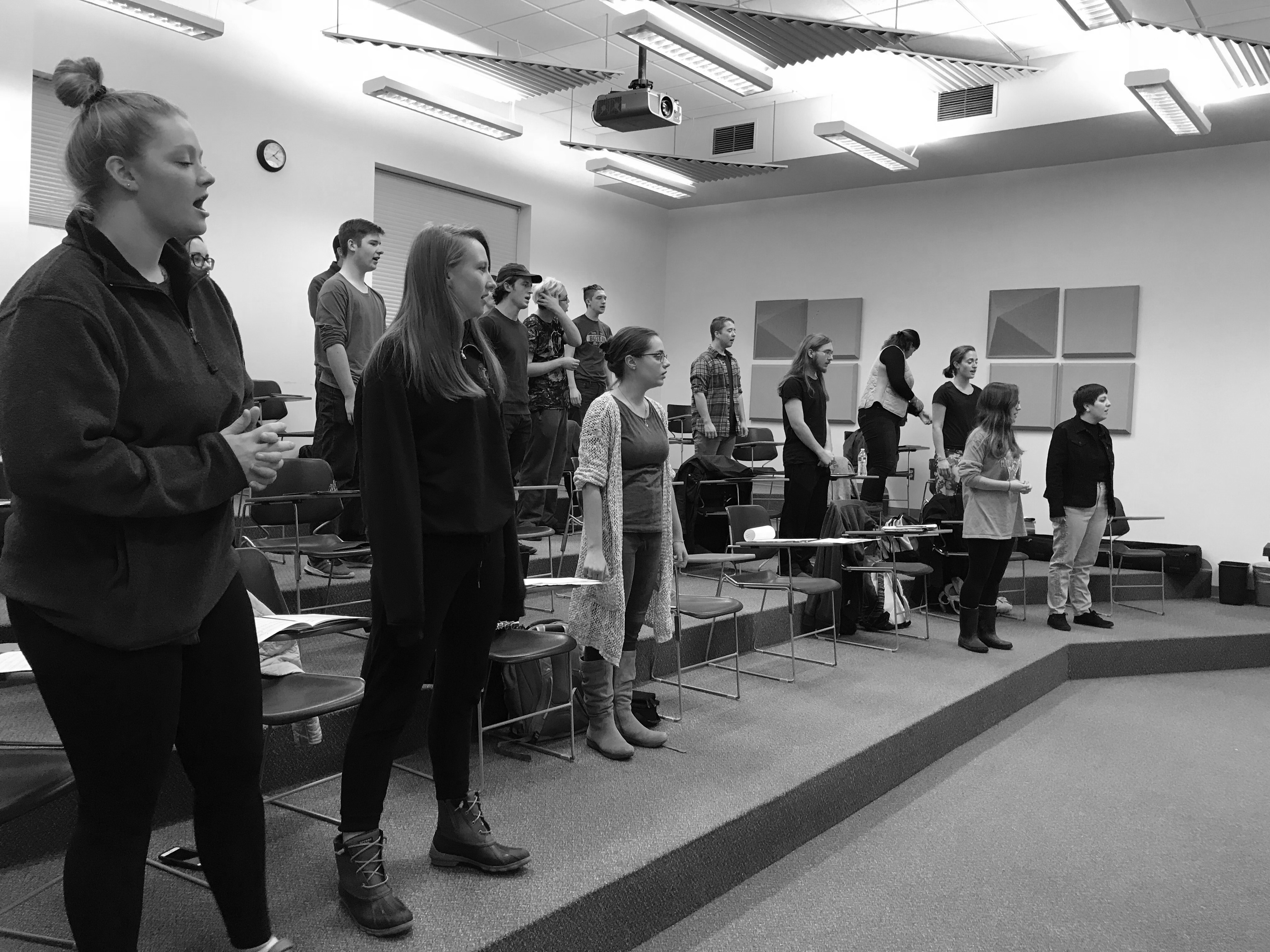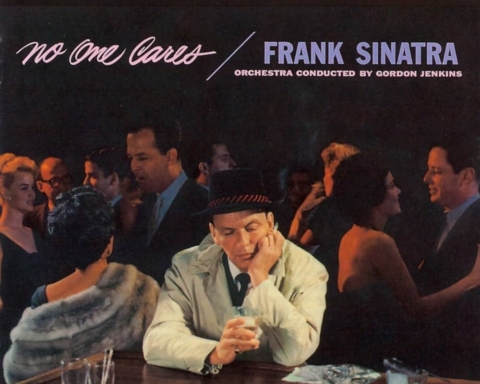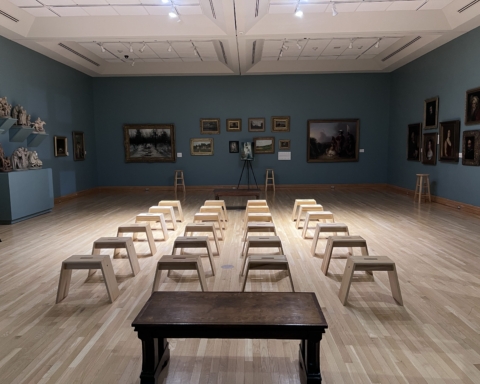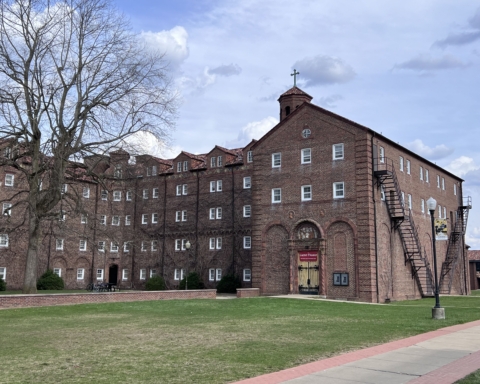Smiles cracked on students’ faces as choir instructor Kathryn Black stood at the front of the room, leading the students in physical and vocal exercises that would warm them up for the class to come. The sounds of lip trills and simple vowel exercises bounced off the walls of the choir classroom, and students later began to giggle at their inability to successfully complete a warm-up exercise that involved alternating the movements of one’s arms.
Bonaventure’s concert choir, a once a week class that meets for two and a half hours on Wednesday evenings, will perform its first concert of the semester this Sunday at 2 p.m. in the Regina A. Quick Center for the Arts.
The program includes five pieces, which freshman choir member Cece Egan, a Spanish major, described as “very diverse and very cultural.”
The concert program will begin with the piece, “Freedom is Coming.” The song has a soulful, pulsating, rhythmic quality about it. Black encouraged members of the choir to “present energy” during this piece.
Next in the lineup is “Hine Ma Tov,” which is a piece written by Neil Ginsberg in Hebrew. Black described the sound of this piece as very cultured with a full sound.
The traditional Hebrew piece is followed up by “Weep No More,” a beautiful, powerful piece by David N. Childs. The harmonies lace together as though the notes could never be separated. The piece builds in intensity as it goes on, which creates the powerful tone that emulates from it.
Second-to-last comes “Indodana,” a traditional South African song arranged by Michael Barrett and Ralf Schmitt. Taylor Raine, a freshman choir member and accounting major said that Indodana is her favorite piece, because she “like[s] the way it starts out mellow and then builds. I like the way that [Black] refers to the men as ‘vocal dry ice’ underneath the women.”
Black said that there are several major differences between South African music and the music typically associated with the United States. She said that the African songs were passed down by ear through generations and communities. The second difference, according to Black, is that “African rhythms are incredibly complex compared to what we’re used to doing.”
Both Raine and Egan agreed that the challenging rhythms presented in the class have expanded their knowledge of music theory and pushed them to become better musicians. Along with improving their vocal performance, choir helped Raine and Egan to meet new people and form friendships.
The last song the choir performs will be “Uniamo in Amore (Let us Unite in Love)” by Kevin Memley.
Black understands the rigorous schedules her students carry. She said, “I know you have jobs and loads of other classes and stressors… but you’re working, you’re giving me your best.”
It’s clear that choir is important to Black, and Raine said that Black is extremely knowledgeable and dedicated to her job and to furthering students’ love for music.
Though choir seems to be enjoyable for the students involved, there are members of the SBU community that don’t know about its place on campus.
Matt Morgan, a freshman finance major, said, “We have a choir? I didn’t know that.”
Even though for some the musical prowess of their peers slips through the cracks, others are aware of the talent that SBU students have.
Olivia Strong, a freshman early childhood education major, said that she is planning on going to the choir concert on Sunday because she wants to support her friends in choir.
After half a semester of work, the choir is looking forward to its Sunday performance at the Quick Center. The culmination of their efforts will shine through in the diverse selection of music that will be performed.
By Meghan Hall, Staff Writer
hallml18@bonaventure.edu






